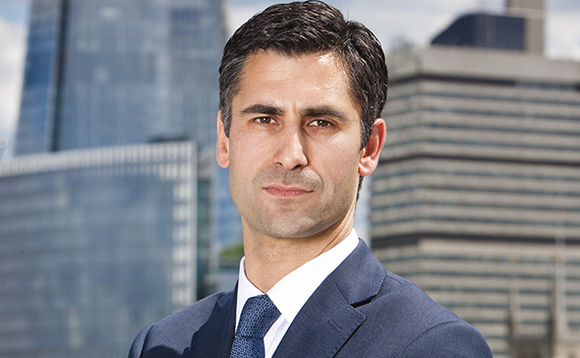
Secondaries: A balancing act

The burgeoning secondaries market means the alignment between existing LPs, incoming investors and GPs requires more careful thought than ever before. Alice Murray speaks to King & Wood Mallesons SJ Berwin partner Warren Allan (pictured) about the changing balance of power
The secondaries market has reached new levels of maturity, causing GPs to alter terms and conditions in their fund documents to reflect the significant amounts of cash continuing to flood into secondaries-focused funds.
At the end of last year, Alpinvest amassed $4.2bn for its secondaries programme, Lexington launched its latest secondary fund at the start of 2014 with an ambitious $8bn target, and Ardian collected $9bn for its secondaries platform in April. While the development of the secondaries market has undoubtedly been a hugely positive step for the asset class – mainly as a way to assuage LP concerns over the illiquid nature of private equity – it is fast becoming apparent that, as secondaries fund sizes continue to swell, every rose has its thorns.
It is largely accepted that secondary buyers are passive investors – merely stepping into the shoes of the seller. But the much-celebrated and deeply cherished alignment that has long been at the heart of private equity is at risk of fading away as LP bases are subject to higher levels of turnover, and secondaries players come under increasing pressure to deliver returns.
GPs have progressively changed terms in their fund documents over time to bring evolving secondary transactions within the scope of the basic transfer restrictions, according to Warren Allan, partner at King & Wood Mallesons SJ Berwin: "While the terms of older funds restricted direct transfers of title to interests in the fund vehicle, GPs reacted to an evolving secondaries market and the use of varying transaction structures by broadening the scope of transfer restrictions. In essence, the change was a tool to retain control over their investor base."
Traditionally, fund terms have been straightforward when it comes to transfer restrictions, often just requiring the GP's consent when a secondaries player is buying up an interest. However, as the secondaries market continues to attract investment, and these funds are under increasing pressure to deploy cash, the entire game is changing.
Powder in the keg
It is against this backdrop of huge cash piles targeting secondary deals that GPs are adjusting terms and conditions at the inception of new vehicles, demanding more visibility and control over structures, we saw restrictions on transfer in fund documents becoming more GP-friendly, resulting in the consent of GPs being required in the case of, for example, swaps or derivative transactions in addition to the transactions involving the straight sales of legal title to interests in the fund," explains Allan. As secondaries players are forced to find new ways of structuring deals, GPs launching new vehicles are increasingly aware of how much control they stand to lose over their fund if secondaries investors find ways of bypassing the need for GP consent.
And it is not just a desire for improved visibility that is creeping into fund documents. The mounting pressure placed on secondaries funds to put cash to work is also causing very detailed and specific negotiations. Allan recently witnessed LPs negotiating agreed upfront consent from GPs for specified transfers: "Institutional investors in particular, which tend to be more focused on their future strategy with regard to their portfolio of fund interests, may seek to negotiate with the GP an agreed upfront consent to a particular type of transfer – in anticipation, for example, of a potential future strategic sale or restructuring. This could result in the GP agreeing upfront to not unreasonably withhold its consent to the anticipated trade."
But secondaries players are also doing their homework, with a recent advancement seeing such investors actively seeking information rights. "This is most common with secondary funds, where the secondary buyer may seek notification from a GP if an LP in the underlying fund intends to transfer its interest and/or some form of pre-emption right," says Allan.
Within an environment of increasingly aggressive secondaries players, GPs are more frequently asking for an option to buy secondary stakes themselves. "Sometimes GPs express an interest in buying part or all of a secondary stake, but this can complicate matters for a seller who is trying to get independent pricing," says Patrick Knechtli, a partner at SL capital Partners. This highlights GPs' growing desire to increase the amount of control they have over secondary transfers, even going so far as to buy the stake themselves.
Jockeying for position
While tailored negotiations are increasingly taking place at fund launch – with traditional LPs, secondaries investors and even GPs vying to promote their interests – the ever-changing secondaries market is also impacting the balance of power when it comes to established funds.
According to Heather Stone, chair of Edwards Wildman's fund formation practice, two key negotiations take place when a secondary transfer is underway: "The first is between the seller and the buyer, for a single stake or a pool of interests – this stage doesn't require any involvement from the GP. If the transaction concerns a single stake, the transfer is usually straightforward; although the outgoing LP does need to engage with the manager early to obtain permission to disclose information, as the LPA will carry a non-disclosure agreement." Stone points out that when a pool of stakes is being sold, and especially if that portfolio involves core interests, it is here that things become more complicated because the incoming investor will want to make sure of each GP's consent to the transfer of each core interest, at least," she adds. "GPs become involved at the second stage of the negotiations."
It is at the second stage of the negotiations that GPs can exert some degree of leverage, according to Stone. "For instance, side letters to the LPA do not automatically transfer from the seller to the buyer," she says. "GPs tend to push back on granting the secondaries players' original terms of the side letter, as they are different types of investors."
Furthermore, there is more likely to be some negotiation around changing the terms in the LPA during sales of large interests. While this sort of activity is minimal in Europe, the fact that it is happening in the US is a signal of things to come.
Extension tension
Whether or not they are successful in altering terms and conditions in their favour, it is clear that secondary buyers are not merely passive investors, simply taking the position of the seller. This is most apparent if the GP requires a fund extension or more investment. "In a situation where new money is coming in on top of a stake transfer, everyone involved should be asking about the motivation of the buyer and the seller," says Stone. She suggests the sort of questions that should be considered: "Is the sale taking place because the GP expects not to raise another fund? Will the new investment really get the portfolio to exit? Will it really boost value? When you boil it down, you have to look at everyone's motivations."
According to one mid-market GP, a manager is most at risk when asking for a fund extension – a secondary investor could potentially block an extension and push for the fund to be wound up as such LPs are usually more focused on liquidity.
However, a flip side to this potential issue is emerging due to the growing pressure under which secondaries funds are to put capital to work. Michael Schad, a partner at Coller Capital, argues that such situations can be an excellent opportunity for secondaries players to rise to the challenge: "It is likely that, when the fund reaches maturity, all investors will have to sit down and jointly agree that something needs to be done. It is out of that discussion that a secondary transaction is often decided as the solution."
Allan agrees: "If existing LPs in a fund are not able or willing to provide additional capital or remain an investor for an extended period, then some GPs are turning to the secondary market to provide a structured solution offering some liquidity to existing investors and new capital to the GP to support continued investment activity."
Advent of the activist
Given their increased clout and focus on liquidity, could one imagine a situation where secondaries players become activists? "It is possible that where several transactions have taken place, a secondary manager could significantly increase its interest in a fund, reaching critical mass and voting power. This is possible in theory but it is not something I have seen," says Nils Rode, managing director and co-head of investment management at Adveq. Rode asserts that despite this being a possibility, GPs and LPs alike want a long-term view. Indeed, even if a secondary investor amassed control over a fund, it is in everyone's best interest that the fund reaches a reasonable level of return even if that requires more time and money.
The bottom line is that if the GP has the power to block a transfer and becomes concerned about what a secondary investor might do if it gains a significant stake in the fund, then its decision should be driven by a commercial analysis of the short- and long-term impact that a refusal would have. "Regularly refusing transfers may cause a manager to lose future institutional investor participation in its funds because of a lack of perceived secondary market liquidity," says Winston Penhall, partner in the investment funds group at Reed Smith.
Furthermore, these deals can play an important part in the development of the asset class. SL Capital's Knechtli believes the secondary market can act as a catalyst for resolving issues within problematic funds: "it speeds up the Darwinian process. If a fund has not performed well, then secondary buyers can provide a solution to unlock a stalemate between a manager and its investors."
While the secondary market continues to evolve, it is important fund managers keep an eye on developments and think about how this activity can affect them. And it would appear that those launching new funds are well aware of the potential dangers, reflected in the changing terms of new LP as in order to give GPs more control over transfers. But given how vital the secondary market has become for the longevity of private equity, it remains in the best interest of all parties involved to carefully maintain a delicate balance of power.
Latest News
Stonehage Fleming raises USD 130m for largest fund to date, eyes 2024 programme
Multi-family office has seen strong appetite, with investor base growing since 2016 to more than 90 family offices, Meiping Yap told Unquote
Permira to take Ergomed private for GBP 703m
Sponsor deploys Permira VIII to ride new wave of take-privates; Blackstone commits GBP 200m in financing for UK-based CRO
Partners Group to release IMs for Civica sale in mid-September
Sponsor acquired the public software group in July 2017 via the same-year vintage Partners Group Global Value 2017
Change of mind: Sponsors take to de-listing their own assets
EQT and Cinven seen as bellweather for funds to reassess options for listed assets trading underwater








